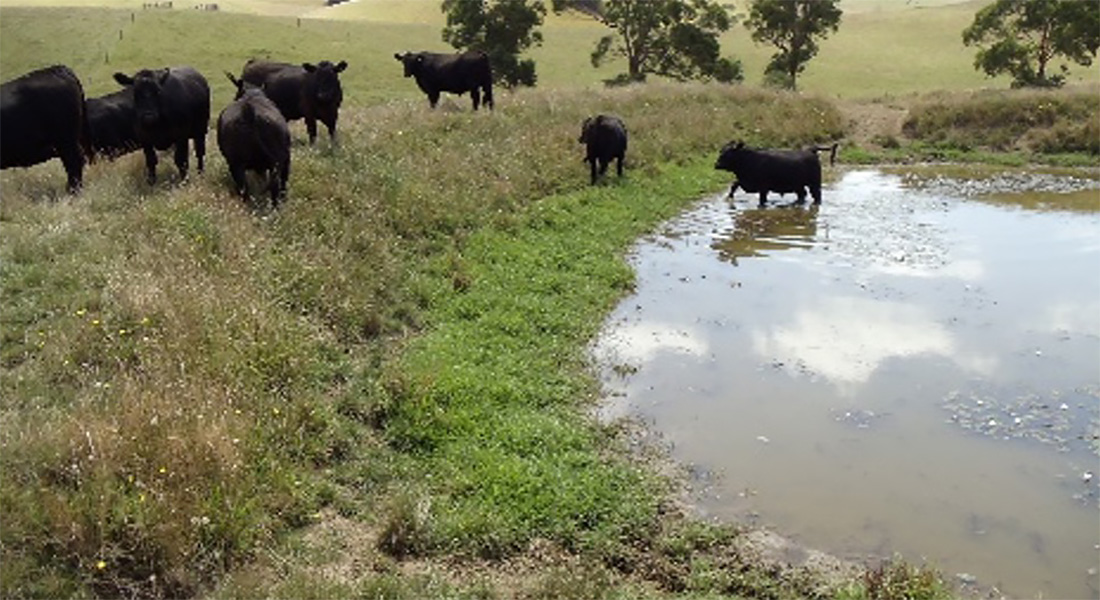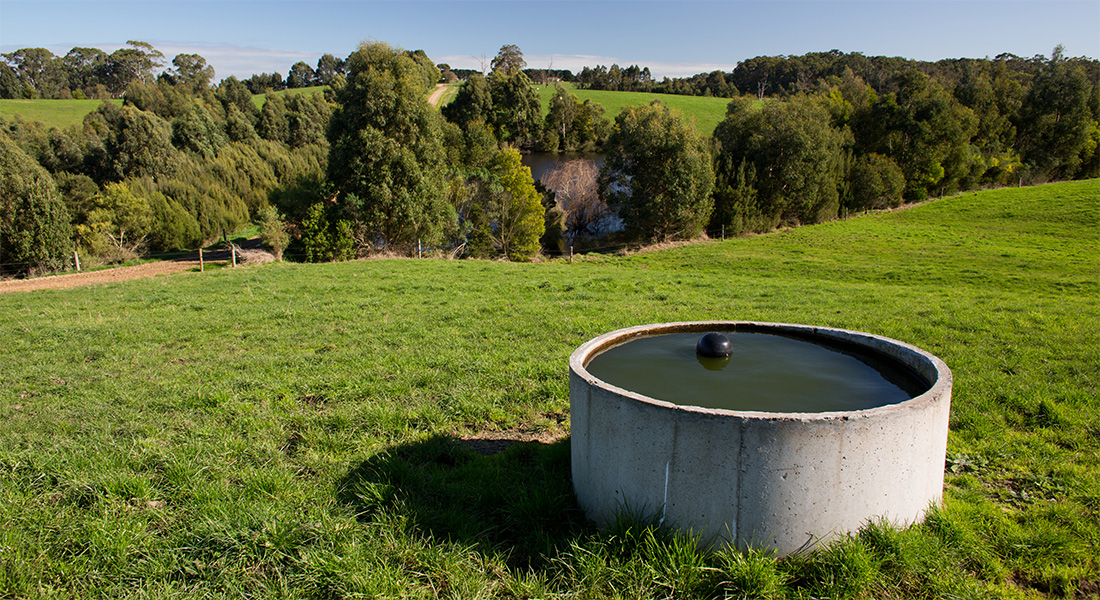A dam good way to care
By protecting dams from livestock, livestock and waterways benefit
Everyone loves a good waterhole, including stock! Farm dams are often used by cattle and other livestock to have a drink and a dip, especially when its warm. Unfortunately they also tend to do their business while they’re in there. All these extra nutrients, not to mention the loose sediment coming from the churned up banks, can cause farm dams to have poor water quality. Blue green algae can occur, particularly in summer when the water is warm and stagnant.

Not only can this be harmful for the farm animals drinking this water, but it can also impact our rivers. Dam water storages are often located close to waterways, and sometimes capture small headwater streams and gullies. This means that when they leak or overflow, this poor quality water can enter waterways. Where this happens occasionally, it’s not such a big deal – but the cumulative impacts from the multitude of farm dams in our catchments means a little care can go a long way to improve water quality in our waterways.
Farmers are working with Melbourne Water to improve their farm dams, and everyone is seeing the benefits. By fencing out livestock and planting in and around dams, water can be filtered by vegetation before it flows into the dam. Dam walls are protected from damage by stock, and stock are kept safe from getting stuck and drowning. And as it turns out, farm animals have standards – they prefer to drink clean water from troughs than from their own paddling pools.

With the right plants and protection, farm dams can be a haven for insects, frogs, birds and other aquatic life. Some recent research from Deakin University and RMIT University has found that fencing out livestock from dams reduces methane emissions (a potent greenhouse gas) by up to 92%. And in addition to all that, improving the quality of farm dams can also improve the water resilience of a farm – if a dam can provide a reliable source of good quality water, a farm might not need as much water from the river.
WATCH - Farmers Taking Action: Enhancing farm dams
Melbourne Water’s Rural Land Program provides assistance to landholders to keep soil and nutrients on their farm and out of waterways. Farmers are provided with technical support to improve management practices, and financial assistance for on-ground works, such as fencing, off-water stock watering and revegetation. For more information and to check your eligibility, have a look at the Liveable Communities, Liveable Waterways page on Melbourne Water’s website.
Links to the Healthy Waterways Strategy – All catchments
Works to filter water with fencing exclusion and revegetation address river performance objectives in all catchments of the Healthy Waterways Strategy, to reduce nutrient and sediment runoff from rural land through improved management.